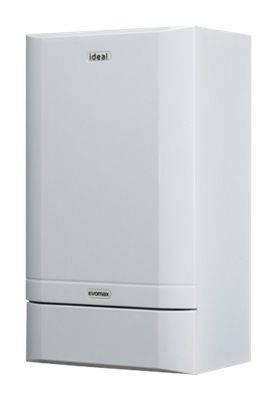
Condensing vs non-condensing Gas Boilers
March 19, 2024Can you explain the differences between a condensing and non-condensing gas boiler, and which one would be more suitable for my specific needs?
A gas boiler is an essential component of any home heating system. It converts fuel oil or natural gas into heat, typically used to generate hot water or steam that can then be distributed throughout the house via radiators or other means. Two common types of gas boilers are condensing and non-condensing models.
Condensing vs Non-Condensing Gas Boiler:
1. Efficiency: Condensing gas boilers are significantly more efficient than non-condensing boilers due to their ability to extract heat from exhaust gases, which can be as low as 90°C. In contrast, non-condensing boilers operate at temperatures above 120°C, resulting in wasted energy and lower efficiency levels. Condensing gas boilers typically have an efficiency rating of around 90-98%, while non-condensing boilers usually range from 55-70%.
2. Initial Cost: Non-condensing gas boilers are generally less expensive than their condensing counterparts due to their simpler design and fewer components. However, over the lifetime of the boiler, the higher efficiency of a condensing model can result in significant cost savings on fuel bills.
3. Space Requirements: Non-condensing gas boilers typically require more space than condensing models due to their larger size and water storage tank. This is because they need to accommodate the larger heat exchanger required for operation at higher temperatures. Condensing gas boilers, on the other hand, can often be installed in smaller spaces as they generate less waste heat.
4. Maintenance: Both types of gas boilers require regular maintenance to ensure optimal performance and efficiency. However, due to their lower operating temperature, condensing models tend to produce fewer corrosive byproducts that may cause damage over time. As a result, they generally have a longer lifespan than non-condensing boilers.
Which one is right for you?
The suitability of a condensing or non-condensing gas boiler depends on several factors, including your heating system design, the size of your home, and your budget. If you have a modern heating system with well-insulated radiators or underfloor heating, a condensing gas boiler would likely be more efficient and cost-effective in the long run. On the other hand, if you have an older heating system with standard radiators and lower insulation levels, a non-condensing gas boiler may still provide adequate heating while being less expensive to install initially.

Ideal Evomax 80
The Ideal Evomax 80 gas boiler boasts a high efficiency rating, compact design, and advanced controls for reliable and cost-effective heating.
In summary, condensing gas boilers are generally more efficient, cost-effective in the long run, and have a smaller footprint than their non-condensing counterparts. However, initial installation costs can be higher due to their complexity and additional components required for condensate drainage. Ultimately, the decision between a condensing or non-condensing gas boiler depends on your specific heating needs and budget constraints. It’s always recommended to consult with a qualified heating engineer who can assess your home’s requirements and make personalized recommendations.

Why Condensing Gas Boilers are Worth the Investment**
While the article highlights some valid points about non-condensing gas boilers, I’d like to offer a more optimistic perspective on the benefits of condensing models. As an expert in the field, I’ve seen firsthand how these efficient systems can transform homes and save homeowners money in the long run.
Efficiency: The Game-Changer
Yes, condensing gas boilers are more efficient than non-condensing models, but that’s not just a minor advantage – it’s a game-changer. By extracting heat from exhaust gases, condensing boilers can achieve efficiency ratings of 90-98%, compared to the 55-70% of non-condensing models. This means that homeowners can enjoy significant cost savings on their fuel bills, which is especially important for those living in energy-efficient homes or with high heating demands.
Initial Cost: A Short-Term Expense
While it’s true that condensing gas boilers are generally more expensive to install upfront, I’d argue that this is a short-term expense worth considering. As the article notes, non-condensing models have lower initial costs but may not provide the same level of efficiency or cost savings in the long run.
Space Requirements: A Compact Solution
Another benefit of condensing gas boilers is their compact design. They require less space than non-condensing models due to their smaller footprint and reduced waste heat generation. This makes them ideal for homes with limited space or those who value a sleek, modern aesthetic.
Maintenance: A Longer Lifespan
As the article states, both types of gas boilers require regular maintenance to ensure optimal performance. However, I’d like to add that condensing models tend to produce fewer corrosive byproducts than non-condensing models, which can lead to a longer lifespan and reduced maintenance costs over time.
Expert Tips from My Experience
Based on my professional experience, here are some additional tips for homeowners considering a gas boiler:
1. Consult with a qualified heating engineer: As the article recommends, it’s essential to consult with a knowledgeable heating engineer who can assess your home’s specific needs and make personalized recommendations.
2. Consider your home’s insulation levels: If you have an older home with lower insulation levels, a non-condensing gas boiler may still provide adequate heating while being less expensive to install initially.
3. Look for high-efficiency models: When shopping for a condensing gas boiler, look for models with high efficiency ratings (90-98%) and advanced controls for reliable and cost-effective heating.
In conclusion, while non-condensing gas boilers may have their advantages, I firmly believe that condensing models are worth the investment. Their increased efficiency, compact design, and longer lifespan make them a more attractive option for homeowners looking to save money and reduce their environmental impact.